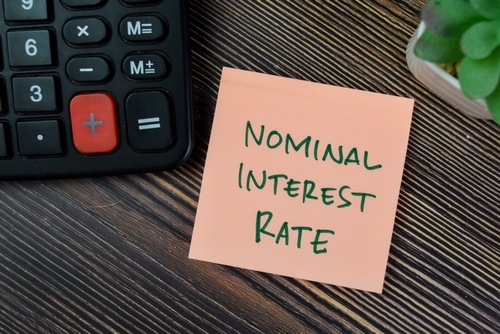When will interest rates rise for savers?
Interest rates on UK savings accounts saw a rapid rise in 2023, after the base rate peaked at its highest level since 2008, and it was a similar story in mainland Europe, with savings rates gradually increasing in 2023 following eight long years of ECB-set negative interest rates.
We’ve seen savings rates in the UK slowly fall again since then, although the base rate was held at 4.5% in March 2025. So, what’s next for the UK? We look at the savings rate forecast for the rest of 2025 and beyond.
Savings rates in the UK are linked to the base rate, set by the Bank of England (BoE)
Typically, banks will ‘pass on’ these rate rises to consumers
While this has been good news for savers in recent years, rates have now started to fall
The information provided here is for informational and educational purposes only and does not constitute financial advice. Please consult with a licensed financial adviser or professional before making any financial decisions. Your financial situation is unique, and the information provided may not be suitable for your specific circumstances. We are not liable for any financial decisions or actions you take based on this information.
When will interest rates rise for savers?
Interest rates were cut to 4.5% in February 2025. Despite the Bank of England holding this rate in March 2025, some analysts predict between two and four further rate cuts in 2025. This will likely have a knock-on effect on savings rates, so it could be worth considering locking your money in now.
Savings account interest rate predictions 2025
Other analysts expect that the recent rise in the inflation rate will deter the Bank of England from cutting rates more aggressively this year. However, City investors are still predicting another two cuts in 2025.
When is the next interest rate decision in the UK?
The next interest rate decision is on 8 May 2025.
The MPC reviews and announces the base rate eight times a year (approximately every six weeks). You can view the upcoming dates for 2025 on the BoE website.
Best savings rates 2025
The best savings account for you will depend on your personal circumstances and how much flexibility you will require. However, some of the highest interest rates can be found on fixed rate bonds. Regular savings accounts often also offer high interest rates, but these come with restrictions, like the amount of money you can deposit per month.
Will UK savings interest rates go up or fall in 2025?
The direction of UK savings interest rates in 2025 will depend on a number of factors, including inflation, interest rates, and economic growth.
After the February meeting of the Monetary Policy Committee, The Bank of England suggested the UK will only narrowly avoid a recession in 2025***. Inflation then increased to 3% in January, although there was a subsequent decrease to 2.8% in February.
If the UK economy experiences a recession, banks may be less likely to offer high interest rates on savings accounts, as they will be more focused on lending money to businesses and consumers rather than attracting deposits.
***https://www.bbc.com/news/articles/c0lzj3g77gpo
Should I fix my savings now or wait?
Whether or not you should fix your savings now or wait depends on your individual circumstances and financial goals, but with interest rates already falling, now could be the ideal time to lock your money in. Longer-term savings accounts, for example 2 or 3 year fixed rate bonds, are an attractive option for savers as they often guarantee good returns.
Another thing to consider is how long you plan to keep your savings fixed. If you know you’ll need access to your money in the short term, then fixing your savings for less than a year may be a good option for you. However, if you are saving for a long-term goal, such as retirement, then you may want to consider fixing your savings for a longer period of time. This will give you more certainty over how much interest you will earn over the long term.
Ultimately, the decision is a personal one. There is no right or wrong answer, and the best decision for you will depend on your individual circumstances and financial goals.
Saving with Raisin UK
Regardless of what happens to the savings interest rate, there’s never a bad time to save. To find the best savings account for you and compare interest rates on savings accounts, register for a Raisin UK Account and log in to apply.
Save smarter with the Raisin UK newsletter!
What’s in it for me?
- Receive exclusive updates on market-leading rates
- Ensure you never miss a bonus offer
- Keep your finger on the pulse with the latest financial news


